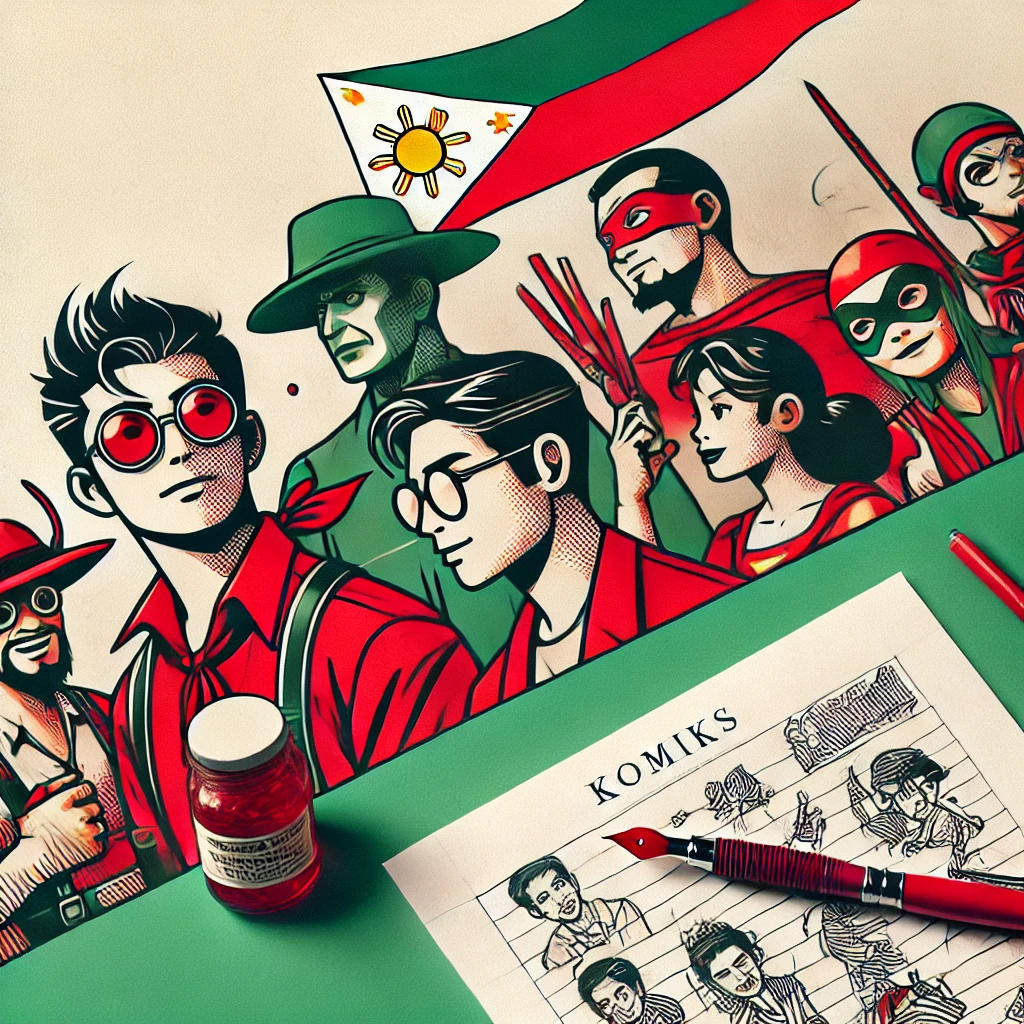The tapestry of Philippine history is rich with tales of bravery, sacrifice, and unwavering patriotism. While names like José Rizal and Andrés Bonifacio are etched into the national consciousness, countless other heroes have faded into obscurity. These unsung figures played pivotal roles in shaping the nation’s destiny, yet their contributions remain largely unrecognized. This blog aims to shed light on these forgotten heroes, whose stories deserve to be told and remembered.
The Importance of Inclusive Historical Narratives
Understanding the full spectrum of historical figures is crucial for a comprehensive grasp of Philippine history. By acknowledging these lesser-known heroes, we gain a more nuanced perspective on the complexities of the nation’s journey to independence and beyond. Their stories offer valuable insights into the diverse contributions that have shaped the Philippines we know today.
Women Warriors: The Unsung Heroines of Philippine Revolution
Gabriela Silang: The Ilocano Joan of Arc
While her name may be familiar to some, the depth of Gabriela Silang’s contributions often goes unrecognized. As the first Filipino woman to lead a revolt against Spanish colonizers, Silang’s bravery and leadership skills were extraordinary. After her husband Diego’s assassination in 1763, she assumed command of his revolutionary forces, continuing the fight for independence in Ilocos.
Teresa Magbanua: The Visayan Joan of Arc
Teresa Magbanua, also known as “Nay Isa,” was a formidable military leader during the Philippine Revolution and the Philippine-American War. Despite facing gender discrimination, she proved her worth on the battlefield, earning the respect of her male counterparts. Magbanua’s tactical prowess and courage in combat earned her the nickname “The Visayan Joan of Arc.”
Agueda Kahabagan: The Tagalog Joan of Arc
Agueda Kahabagan, often referred to as “Henerala Agueda,” was the only woman to hold the rank of general in the Philippine Revolutionary Army. Her fearless leadership during battles against Spanish and American forces in Laguna province earned her a place in history, though her story remains largely untold.
Indigenous Leaders: Defenders of Ancestral Lands
Lapu-Lapu: The First Filipino Hero
While Lapu-Lapu’s name is well-known, the full extent of his significance is often overlooked. As the first Filipino to resist foreign invasion, Lapu-Lapu’s victory over Ferdinand Magellan in 1521 marked a crucial moment in Philippine history. His leadership of the Mactan people demonstrated the fierce determination of indigenous communities to protect their lands and way of life.
Sultan Kudarat: The Unconquered Sultan of Mindanao
Sultan Muhammad Dipatuan Kudarat was a powerful Muslim leader who successfully resisted Spanish colonization in Mindanao for over 50 years. His diplomatic and military skills ensured the independence of his sultanate and protected the Islamic faith in the region. Despite his significant impact, Sultan Kudarat’s story is often overshadowed in mainstream Philippine history.
Revolutionaries and Reformists: Catalysts of Change
Marcelo H. del Pilar: The Great Propagandist
Marcelo H. del Pilar was a key figure in the Philippine reform movement of the late 19th century. As editor of La Solidaridad, a newspaper advocating for Philippine representation in the Spanish Cortes, del Pilar played a crucial role in spreading ideas of reform and independence. His contributions to Philippine literature and journalism were instrumental in shaping nationalist thought.
Apolinario Mabini: The Sublime Paralytic
Although Apolinario Mabini’s name is recognized, the full extent of his intellectual contributions to the Philippine Revolution is often underappreciated. As the chief adviser to President Emilio Aguinaldo, Mabini drafted crucial documents that laid the foundation for the First Philippine Republic. His unwavering principles and sharp political mind earned him the title “The Brains of the Revolution.”
Table: Key Contributions of Forgotten Heroes
| Hero | Period | Main Contribution |
|---|---|---|
| Gabriela Silang | 1763-1764 | Led Ilocano revolt against Spanish rule |
| Teresa Magbanua | 1898-1900 | Military leader in Visayas during Revolution and Philippine-American War |
| Agueda Kahabagan | 1896-1898 | Only woman general in the Philippine Revolutionary Army |
| Lapu-Lapu | 1521 | Defeated Magellan, first resistance against foreign invasion |
| Sultan Kudarat | 1619-1671 | Resisted Spanish colonization in Mindanao |
| Marcelo H. del Pilar | 1880-1896 | Key propagandist and editor of La Solidaridad |
| Apolinario Mabini | 1898-1903 | Chief adviser to the First Philippine Republic |
Educators and Intellectuals: Shapers of National Consciousness
Trinidad H. Pardo de Tavera: The Renaissance Man
Trinidad H. Pardo de Tavera was a polymath whose contributions spanned various fields, including medicine, linguistics, and history. His work on pre-colonial Philippine languages and culture laid the groundwork for understanding the nation’s rich heritage. Despite his significant scholarly contributions, Pardo de Tavera’s legacy is often overlooked in discussions of Philippine intellectual history.
Isabelo de los Reyes: The Father of Philippine Folklore
Isabelo de los Reyes was a pioneering folklorist, journalist, and labor leader. His work in collecting and preserving Filipino folklore was groundbreaking, providing valuable insights into pre-colonial Philippine culture. As a labor organizer, de los Reyes played a crucial role in establishing the first labor union in the Philippines, yet his multifaceted contributions are often underrecognized.
Scientists and Innovators: Pioneers in Their Fields
María Ylagan Orosa: The Food Technologist
María Ylagan Orosa was a pioneering food technologist whose innovations helped combat malnutrition in the Philippines. Her development of banana ketchup and the palayok oven improved food preservation and cooking methods, particularly benefiting rural communities. During World War II, Orosa’s food preservation techniques helped sustain guerrilla fighters and internees.
Gregorio Y. Zara: The Visionary Inventor
Gregorio Y. Zara was a brilliant scientist and inventor who made significant contributions to aviation and energy technology. His invention of a two-way television telephone system predated modern video calling technology by decades. Zara’s work on solar energy and alcohol-fueled engines demonstrated his forward-thinking approach to sustainable technology.
Table: Scientific Contributions of Forgotten Heroes
| Scientist/Innovator | Field | Key Innovations |
|---|---|---|
| María Ylagan Orosa | Food Technology | Banana ketchup, Palayok oven, Soyalac |
| Gregorio Y. Zara | Aviation & Energy | Two-way television telephone, Solar energy applications |
Artists and Cultural Icons: Preservers of Filipino Heritage
Fernando Amorsolo: The Grand Old Man of Philippine Art
While Fernando Amorsolo’s name is recognized in art circles, his broader significance to Philippine cultural identity is often underappreciated. As the first National Artist of the Philippines, Amorsolo’s romantic portrayals of rural Philippine life played a crucial role in shaping the national aesthetic during the early 20th century. His works continue to influence perceptions of Filipino beauty and cultural ideals.
Francisca Reyes-Aquino: The Mother of Philippine Folk Dance
Francisca Reyes-Aquino dedicated her life to researching, preserving, and promoting Philippine folk dances. Her extensive fieldwork across the country resulted in the documentation of numerous traditional dances, many of which might have otherwise been lost to time. Despite her crucial role in preserving this intangible cultural heritage, Reyes-Aquino’s contributions are often overlooked in mainstream historical narratives.
Religious Figures: Spiritual Leaders and Social Reformers
Gregorio Aglipay: Founder of the Philippine Independent Church
Gregorio Aglipay was a key figure in the movement for religious reform in the Philippines. As the founder of the Philippine Independent Church (Iglesia Filipina Independiente), Aglipay sought to establish a national church free from foreign control. His efforts to blend nationalism with religious reform played a significant role in shaping Philippine religious and political landscapes.
Mother Ignacia del Espiritu Santo: Pioneer of Women’s Education
Mother Ignacia del Espiritu Santo founded the first Filipino Catholic congregation for women, the Religious of the Virgin Mary (RVM), in 1684. Her efforts in promoting education for women, particularly for indigenous Filipinas, were groundbreaking for her time. Despite her significant contributions to women’s empowerment and education, Mother Ignacia’s story remains relatively unknown to many Filipinos.
Diplomats and Statesmen: Architects of International Relations
Carlos P. Romulo: The Voice of Asia
While Carlos P. Romulo’s name may be familiar to some, the full extent of his diplomatic achievements is often underappreciated. As the first Asian president of the United Nations General Assembly and a key figure in Philippine foreign relations, Romulo played a crucial role in shaping the country’s international standing. His eloquence and diplomatic skills earned him the nickname “The Voice of Asia.”
Elpidio Quirino: The Peacemaker President
Elpidio Quirino’s presidency is often overshadowed by more prominent political figures, yet his efforts in post-war reconstruction and international diplomacy were significant. Quirino’s role in establishing diplomatic relations with Japan after World War II demonstrated his commitment to regional peace and cooperation, despite personal tragedy during the war.
Table: Diplomatic Achievements of Forgotten Heroes
| Diplomat/Statesman | Position | Key Achievements |
|---|---|---|
| Carlos P. Romulo | UN General Assembly President | First Asian to hold the position, advocate for decolonization |
| Elpidio Quirino | President of the Philippines | Post-war reconstruction, normalization of relations with Japan |
The Importance of Remembering
Preserving a Comprehensive Historical Narrative
The stories of these forgotten heroes are integral to understanding the full scope of Philippine history. By acknowledging their contributions, we gain a more nuanced and inclusive perspective on the nation’s past. This comprehensive view is essential for fostering a deeper appreciation of the diverse forces that have shaped Philippine society.
Inspiring Future Generations
Highlighting the achievements of these unsung heroes serves as inspiration for future generations. Their stories of courage, innovation, and dedication provide valuable role models across various fields of endeavor. By bringing these figures to light, we encourage young Filipinos to explore lesser-known aspects of their heritage and perhaps discover new heroes to emulate.
Encouraging Further Research and Discovery
The recognition of these forgotten heroes should serve as a catalyst for further historical research. There are undoubtedly many more unsung figures whose stories are yet to be uncovered. By fostering an interest in these hidden narratives, we encourage scholars, students, and history enthusiasts to delve deeper into Philippine history, potentially uncovering new insights and perspectives.
Promoting National Pride and Unity
Acknowledging the diverse contributions of these forgotten heroes promotes a sense of national pride that transcends regional and cultural boundaries. It highlights the collective effort that has gone into building the nation and fosters a shared sense of heritage among all Filipinos. This inclusive approach to history can contribute to greater national unity and understanding.
Conclusion: Honoring the Unsung, Inspiring the Future
The stories of these forgotten heroes of Philippine history serve as a powerful reminder of the depth and complexity of the nation’s past. From revolutionary leaders and pioneering scientists to cultural icons and diplomatic trailblazers, these unsung figures have left an indelible mark on the Philippines. By bringing their stories to light, we not only honor their legacy but also enrich our understanding of the diverse tapestry that is Philippine history.
As we continue to uncover and celebrate these hidden narratives, we pave the way for a more inclusive and comprehensive appreciation of our national heritage. It is through the recognition of these unsung heroes that we can truly grasp the collective effort and sacrifice that has gone into shaping the Philippines we know today. Their stories inspire us to look beyond the familiar names and delve deeper into the multifaceted history of our nation, encouraging future generations to discover, preserve, and build upon this rich legacy.
Disclaimer: This article aims to provide accurate information based on available historical sources up to 2023. However, historical research is an ongoing process, and new information may come to light. Readers are encouraged to report any inaccuracies or provide additional information for review and potential updates to this content. The goal is to ensure the most comprehensive and accurate representation of these forgotten heroes and their contributions to Philippine history.




